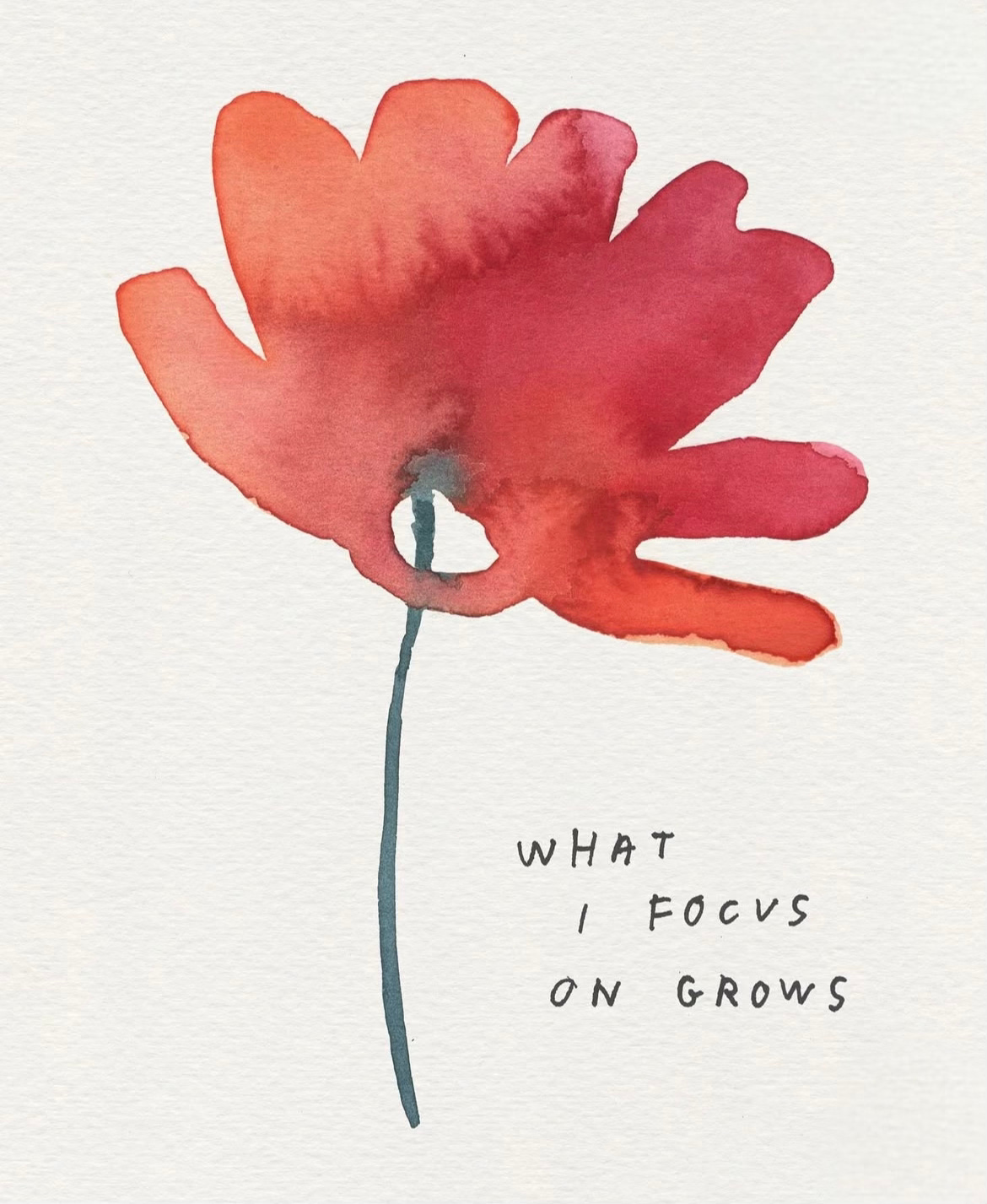On letting go, slowly
forgiveness doesn’t happen all at once, and it isn’t for them—it’s for you.
I found myself sitting cross-legged on her white couch, listening to her speak and feeling hardened by the thought of him. But I didn’t want to shut down. I was at my wits’ end with this relationship. Even though we hadn’t spoken in many months, I was still painstakingly obsessed with my ideas about all his mistakes and how to fix him. I was so over it. Or at least, I was trying to be.
“I wish you well. Every time you think of him. I wish you well. At least three times a day. I wish you well.”
My therapist was offering something to interrupt my thought pattern. The old story of thinking I had to be the one to save him—it was too big a burden to bear. It wasn’t my job. Neither he nor I wanted that for me anymore. For many months, even after trying to separate myself from the patterns we were locked into, I was still struggling to forgive, to let go, to move on. My focus was utterly on him, and this is where my error lay.
Now, looking back, the mantra my therapist taught me wasn’t for him—it was for me. I needed something that would shift the relationship I was tangled in with my younger self. Words that held just the right amount of kindness and neutrality. There was no toxic positivity, no fake “love + light!” or “just forgive + forget.” I’m no stranger to these euphemisms in the yoga world, and I wanted tools that actually showed the way—not ones that buried the pain.
The practices that transform us are often barely perceptible. Often impossible to describe or convey to another. But that mantra changed me.
I wish you well.
It didn’t change anyone else; it didn’t remedy character flaws or old wounds, but things changed. Internally, quietly. I wish you well. My resentment began to fade. My need to be right dissipated. I tended to myself and my wishes simply for health. For goodness. I tended to what I could. I wish you well.
There’s a fine line between making myself understood and making myself free. That line is drawn with a little bit of sacrifice. I wish you well wasn’t the cure for a troubled relationship with another, and that was a hard pill to swallow. My controlling thoughts and hurt ego wanted a solution that made me right. But holding onto the need to be right was compromising my ability to be free.
I was chained down by my thoughts, my anger, my disappointment—and only I could change that. Something had to be sacrificed. Maybe a lot.
In that sacrifice—choosing to free myself from the beliefs and the pain I was perpetuating—I found forgiveness.
I wish you well.
Forgiveness is also much more than this. It takes work. It requires a multifaceted approach with constant repetition. Because we have blinders on. We have our patterns of protection, our need to connect, and our longing to be right. We may mistakenly forgive too quickly, bypassing the things left unresolved—or we harden against it, clinging to our pain and perceived righteousness.
When we choose to forgive, we do it for ourselves. And the part of us that has made the sacrifice needs care, attention, and nurturing. It takes time.
Caroline Myss, a spiritual teacher and energy healer, speaks of forgiveness as the central wound—and healing force—of the heart chakra. Without forgiveness, the heart remains blocked.
“By far the strongest poison to the human spirit is the inability to forgive oneself or another person.”
— Caroline Myss
If we cannot forgive, we cannot love wholly—not others, and not ourselves.
For balance, we must give. Stop seeking to receive righteousness. Stop seeking the understanding.
For. Give.
Give to yourself by wishing others well. One small step toward peace, and then many more steps to give the hurt parts of yourself what they truly need.
Because is forgiveness even possible if we aren’t part of the equation? Can we find freedom from the situation if we haven’t given ourselves permission to be hurt, misunderstood, and still worthy of love?
Forgiveness is for you.
Your freedom. Your own heart.
Wish them well, yes—but do it for you, too.
It will take time, setbacks, and grace. But even small steps count. Even small offerings move mountains.
What helps:
Remember that forgiveness involves sacrifice.
Nurture the part of yourself that made the sacrifice.
Recall the blessings or growth you received through the person or situation.
Stay committed to what brings you joy, even in the smallest forms.
Practice patience.
Hold a clear intention. Intention is everything.
Use mantras or mental cues to interrupt old patterns. “I wish you well.”
Don’t confuse forgiveness with reconciliation.
Let yourself feel the grief. Forgiveness doesn’t bypass sadness—it honors it.
Return to your body. Movement, breath, stillness—these help process what the mind can’t.
“To forgive is to set a prisoner free and discover that the prisoner was you.”
— Lewis B. Smedes





